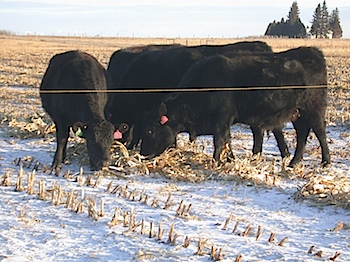Couldn’t resist this shot the other evening. Those are capers clinging to the remains of the Ponte Rotto in Rome. Wonder if anyone ever collects them. Not so much hidden harvest as hard-to-reach harvest.
Diversity really does benefit farms and farmers
Anastasia and Jacob commented on the post about eating insects, to the effect that converting insects into chickens might, despite the inefficiencies involved, be a better way of using insects than converting them directly into people. I loved watching the film Jacob pointed to, not least because I used to work with chickens, love chickens, and love to hear the peeping of contented chicks. And I found Anastasia’s link to a company seeking to replace the fish protein in mass-produced chicken feed with mass-produced insect protein interesting and illuminating too, even though (especially because?) it comes at the problem from exactly the opposite end of the agro-industrial scale.
There is, of course, a middle-way, one that is applicable to more intensive operations in more developed countries. Let the chickens eat the insects growing on manure, without first collecting the manure! I know it sounds wacky, but it works, and has done for a few centuries, at least. After his week visiting Joel Salatin’s operation Michael Pollan waxed positively evangelical about how Salatin follows cows with chickens on his pasture, the miracle being that Salatin doesn’t let the chickens in immediately but waits four days, which is when the dung fly larvae are at their biggest, juiciest and most nutritious. Smart. I also remember visiting the Land Institute’s Sunshine Farm in Salinas, Kansas, back in the early 1990s, when it was under the care of the wonderful Marty Bender. (This is the closest I can get to his obit at The Land Institute’s site ((Come on people, you really need to do something about that.)), but here’s a taste.)
Marty showed me a huge pile of manure, way above my head, being worked on by a fine crowd of fit-looking hens. I can’t remember the details, but as I recall this was effectively the sweepings from the stock’s winter barn, just shovelled out the door with a bulldozer and left there. This is where I get hazy. I think that in due course the mound was reduced and spread out to the point where it could be used to grow veggies. And each spring a new mound would be created, moving around the winter barn. That’s it in principle anyway, a wonderful piece of integration on the farm.
Which leads me nicely to something else I read with pleasure recently. Gary Jones has a fine piece over at Muck and Mystery, explaining how farms, particularly in the Northern Plains of the US, integrated cows into their system through a technique called swath grazing. Farmers pile crop residue into rows called swathes and let the cattle graze them right through the winter. I won’t say more than that, because Gary has done a great job of explaining why that’s a good thing, why it stopped, and why it now might make good sense to start again.
 Gary’s post was prompted by a report from the USDA on recent research into Integrated Farming Systems. That’s the USDA’s picture of cows grazing on corn swathes in the winter snow in North Dakota. The money quote:
Gary’s post was prompted by a report from the USDA on recent research into Integrated Farming Systems. That’s the USDA’s picture of cows grazing on corn swathes in the winter snow in North Dakota. The money quote:
“Adding diversity brings sustainability to farms, both economically and environmentally.”
The Ghanaian chicken farmer, the Florida feed manufacturers, the farmers of the Great Plains and the corn belt; they’re all doing the same thing: making the best use of their resources. In farming, as in everything else: “the future is here. It’s just not evenly distributed yet.”
And one of the ways in which I think the future will change farming is that smaller will become more beautiful. This is something I’ve been thinking about a lot recently, brought into focus by the slight drubbing I’ve received from the same Gary Jones ((See, no hard feelings.)) over my sloppy writing on pesticides. Until now, get big or get out was the way of industrial agriculture. But scale is going to have to change as it becomes more expensive to move things about the old way. The big guys have had the clout to make the system work only for them, effectively squeezing out the small fry. It happened with abattoirs in England and seed merchants throughout the European Union. And now its happening to small farmers hit by the same natural disasters as the big farmers but denied the same level of compensation by government. Maybe that will change too, but not without a fight.
Deciding what to grow
It seems that high food prices have reached Bolivia, but not Saratoga, CA.
Turfing out the lawn
Smaller American Lawns Today. Edible Estates. Freedom Lawns. Recent thinking about the American suburban lawn sounds like a microcosm of the debate about diversity and sustainability in agriculture in general. Read all about it in The New Yorker.
A few seeds held in a muddy hand
A review of The Oxford Book of Modern Science Writing by Richard Dawkins included a beautifully poetic rumination on agrobiodiversity:
The great Ice Age herds were destined to vanish. When they did so, another hand, like the hand that grasped the stone by the river long ago, would pluck a handful of grass seed and hold it contemplatively. In that moment, the golden towers of man, his turning wheels, the vast learning of his packed libraries would glimmer dimly there in the ancestor of wheat, a few seeds held in a muddy hand. Without the gift of flowers and the infinite diversity of their fruits, man and bird, if they had continued to exist at all, would be today unrecognizable. Archaeopteryx, the lizard-bird, might still be snapping at beetles on a sequoia limb; man might still be a nocturnal insectivore gnawing a roach in the dark. The weight of a petal has changed the face of the world and made it ours.
You can get the full thing online. It’s from How Flowers Changed the World by Loren Eiseley.
